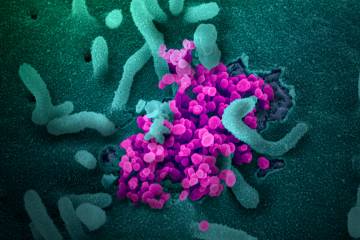The spread of the novel coronavirus has presented unique challenges to public health and health care systems around the world, including new challenges for addressing mental health concerns. As people across the country and world deal with new stressors that arise from social distancing and the exponential growth of COVID-19 cases, concerns about maintaining good mental health have grown as well.
To learn more about these potential challenges and ways to adapt to new routines, environments, and relationships during the coronavirus pandemic, the Hub turned to Dani Fallin, professor and chair of the Department of Mental Health at the Johns Hopkins Bloomberg School of Public Health. This conversation has been edited for length and clarity.
In the past few weeks, efforts to stop the spread of COVID-19 such as self-quarantine and the closing of public spaces have dramatically reordered our social and interpersonal experiences. What effect could this have on mental health?
There are a couple of angles to consider. First are the effects that isolation and social distancing can have on individuals' mental health. There's a lot of evidence showing that social isolation can increase symptoms of mental illnesses like depression and anxiety, among others. Second, all of this is happening at the same time that we're receiving a barrage of difficult news about the pandemic itself. The wave of anxiety from the pandemic, plus the additional consequences of social isolation, can be a difficult combination. As public mental health researchers, at the moment we're particularly worried about an increased risk of anxiety and depression for people.
What advice do you have for people navigating these unknowns?
It's important to name any of these challenging feelings and to be aware of them. It's also important to recognize that it's a totally normal human response in the face of this anxiety-producing moment. For some, it is or will be critical to seek out professional mental health care, especially for those who are already experiencing mental health issues like substance use disorder, depression, and anxiety. Many therapists are now offering telehealth services, so individuals do not have to leave their homes to receive care. There are also many self-help apps and websites that can be very effective.
How can people stay upbeat and motivated during this long period of social distancing?
A few days ago one of our faculty members, Laura K. Murray, wrote an op-ed for The Baltimore Sun on the importance of self-care during this challenging time. One of the main strategies is to be aware and conscious of your news and media intake. The more time you spend reading news about the pandemic, the more likely you are to feel anxious and concerned. That's especially true at home, when you're able to access news media 24/7.
Another effective strategy is to try and look for ways to have social and professional engagement while adhering to social distancing. Using tools like Zoom or Teams—not only to talk by audio but also for video conferencing—can help people feel connected socially with their colleagues, family, and friends, and maintain a sense of belonging. We should also try to be as faithful as possible to a routine. Usually, leaving the house to go to work or school gives us the comfort and structure of our routine, and in uncertain times like these a home-based routine can be helpful, too. Maintaining a sense of normalcy can be a way to alleviate uncertainty in one's daily life during an atypical time.
Many of us are unexpectedly spending a lot more time together at home with our partners, roommates, and families. Given the stress of ongoing events outside the home, what can we do to maintain healthy relationships inside the home and perhaps even grow closer during this crisis?
My first response is more of a human answer than a mental health one: Be sure to give each other a lot of grace and be kind and forgiving to each other. We're all experiencing heightened levels of uncertainty and anxiety right now. Giving an extra beat of patience to others is critical.
Right now, all of us are susceptible to increased feelings of fear, anxiety, and depression. That's OK—it's a normal and typical human response to these events, and there are a lot of tools we can use to help us get through this. For those already dealing with mental health issues, this moment might exacerbate their conditions, and we need to pay particular attention to keeping them healthy and well. Maintaining mental health and wellness during such an uncertain and unpredictable moment will take time and attention, but it is also crucial to our well-being.
I recommend looking for opportunities to do things that we don't get to do in our daily lives. In my family, my husband and two sons and I have played a board game every night after dinner—that's not something we usually do during our non-social-distanced lives. So that's a silver lining. For each person and living situation that silver lining is going to be different. For those who live alone, you might have to seek out more social media than you typically would; for others it might be less social media and more time interacting with those at home or connecting one-on-one with family and friends. One thing we can all do is to look for these silver lining opportunities during this disruptive time.
Posted in Health, Voices+Opinion
Tagged mental health, wellness, coronavirus










